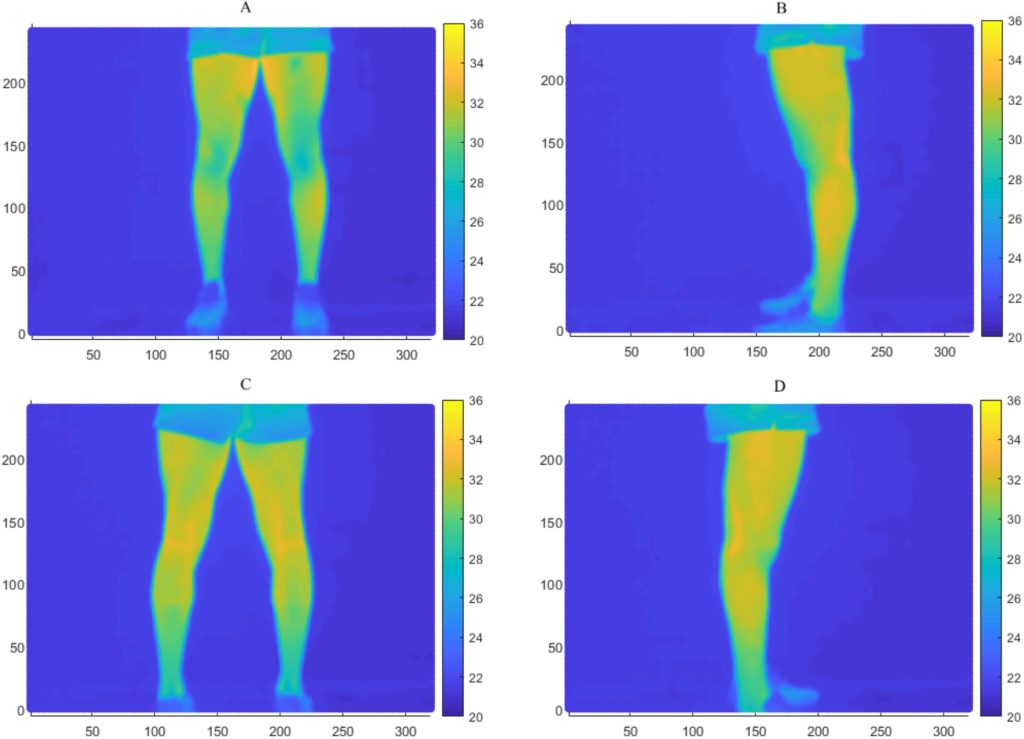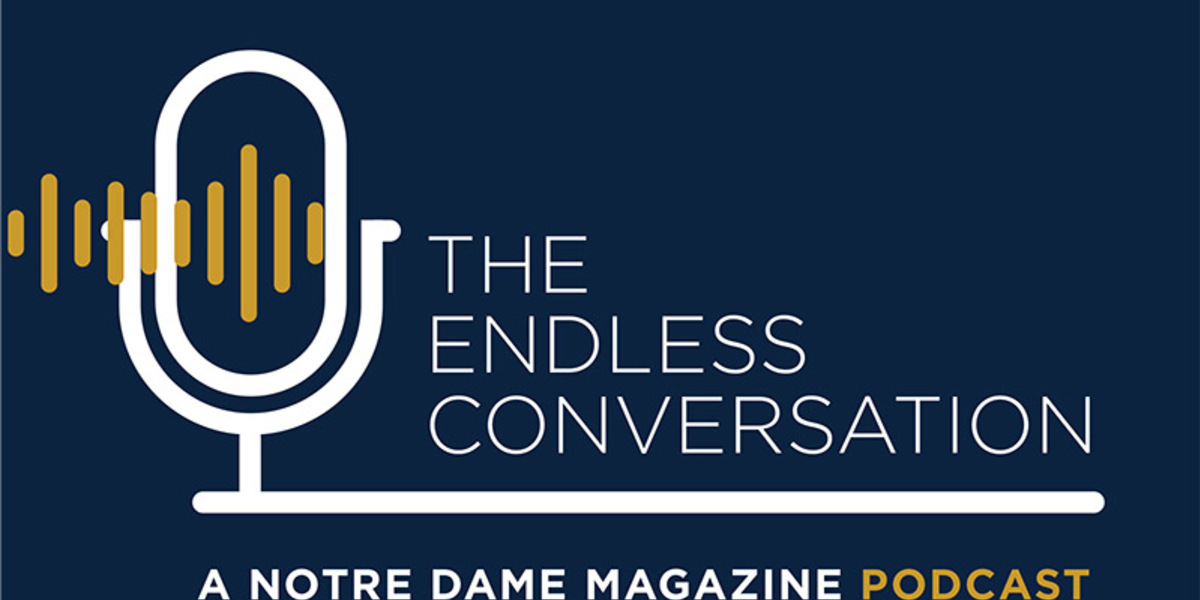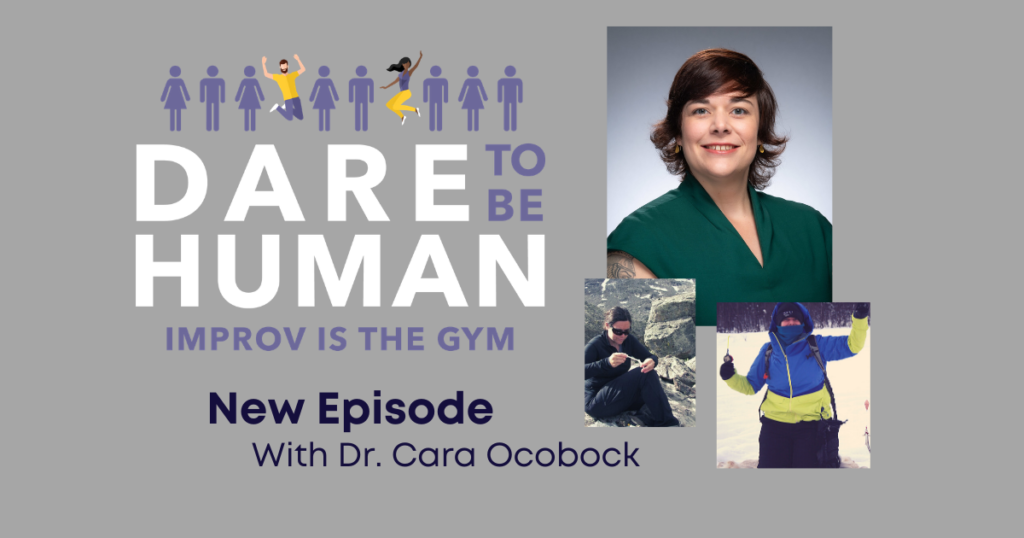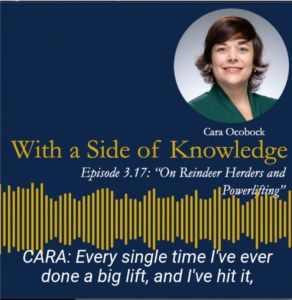Recently, I have been collaborating with Notre Dame Athletics on some fun work. This is a little bit a of a new context for me, formally working with athletics, and it has been a lot of fun. It is really wonderful to be able to collaborate with people with different backgrounds but similar research interests.
This collaboration came about because I have thermal imaging experience because of my work with brown adipose tissue. ND Athletics wants to run a pilot study to see if we could use thermal (infrared) images to track athlete recovery and potentially even identify body regions that are extra hot or cold potentially indicating an emerging injury.
We worked with women’s soccer players and limited our analysis to the lower body, taking thermal images before and after practices and matches.

We found that increased player load was associated with a decrease in surface temperatures of the lower body. This could be due to muscle damage and recovery – blood flow would be restricted during this process leading to cooler surface temperatures. Conversely, the body could be using peripheral cooling to maintain core body temperature within a normal range and improve recovery. However, there is a great deal more work that needs to be done to better understand how we can use thermography to track recovery.



 Back in early March I was
Back in early March I was 